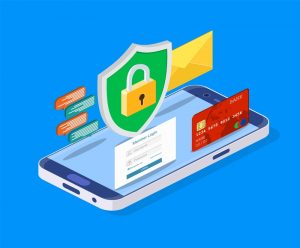Published on 15 June 2021
At Bluebell IT Solutions, we’re spotlighting phishing, where 56% of UK businesses and 62% of charities suffered a cyber attack in the past 12 months and identified phishing as the cause. It only takes one click on a malicious link for your business to face potential financial loss, reputational damage, or data breaches.
Phishing attacks target individuals, but the ripple effects can impact your entire organisation. Educating your team is one of the best defences against this common cyber threat. Here’s how to empower your employees to spot and avoid phishing scams.

Phishing refers to fraudulent communication, commonly via email but also through SMS, phone calls, or social media. Cybercriminals impersonate legitimate organisations to deceive victims into:
These scams are getting harder to spot. We’ve laid out a few helpful tips and questions to ask yourself before following any links or instructions from a potential phishing scam
While firewalls and antivirus software are essential, phishing relies on human error, which no software can fully prevent. That’s why your employees play such a vital role in protecting your business.
Phishing attackers are counting on one thing: someone in your organisation will make a mistake. It could be a single click on a dodgy link or the download of a malicious attachment. Once that happens, the door is open for cybercriminals to access your systems, steal data, or even lock you out of your files.
The consequences can be severe:
The solution? Education and training. By training your employees to recognise phishing attempts and act cautiously, you can turn them into a powerful shield against cyberattacks.
Encourage your employees to scrutinise the sender’s email address:
Official company emails should match the company’s domain. If in doubt, your team can use a search engine to verify the sender’s contact details.
Train your employees to carefully read emails before taking action. Poor spelling, awkward phrasing, and grammatical mistakes are red flags. For instance, a scammer’s email might read: “Make sence does, not?”
While legitimate organisations strive for professionalism, cybercriminals often rely on poorly translated text, leading to obvious errors.

Employees should be cautious of links and attachments, especially if the email raises concerns in the previous steps. Teach them to:
Remind your team that clicking on malicious links or downloading harmful attachments could introduce malware, potentially compromising your business systems.
Scammers often pressure victims with urgent requests like:
Encourage employees to pause and evaluate the situation. Urgent language can be a deliberate tactic to provoke panic, making people overlook suspicious elements. Review the previous questions before taking any action.
Advise your team to assess the quality of the email’s design:
Legitimate companies invest in professional branding and high-quality visuals. Poor image quality or inconsistent design can indicate a phishing attempt.
Phishing emails often ask for things that seem out of the ordinary, relying on confusion or unfamiliarity to catch victims off guard.
Would your manager email you for confidential passwords or financial data? Think about whether the request makes sense.
If something feels off, don’t respond immediately. Instead, check with your supervisor or directly contact the supposed sender through a known, legitimate channel.
Trust your gut, if a request seems strange, it’s worth investigating.
Many modern email systems and security tools are designed to detect phishing attempts before they reach you. If your email provider flags a message as suspicious or your security software issues an alert, don’t ignore it. These tools are your first layer of defence.
Sometimes, the best way to confirm whether an email is legitimate is to get a second opinion. If you’re unsure about an email, escalate it to your IT department or ask your supervisor for advice.
Encouraging employees to flag questionable messages helps protect not just the individual, but the entire organisation.

Here are a few helpful tips to keep in mind when reading and responding to emails.
At Bluebell IT, we understand the importance of keeping your business secure in today’s digital world. From advanced email protection tools to tailored employee training programmes, we provide everything you need to stay one step ahead of cybercriminals.
Whether you’re a small business or a large organisation, we’ll create a cybersecurity strategy that works for you. Our team is here to answer your questions and help you implement the best practices for phishing prevention.
Ready to strengthen your defences? Call us today at 01908044202 to learn more about our services and we can support your business growth. Together, we’ll protect your data, your reputation, and your future.ould like to talk to one of our experts about how you can make your business safer contact us today.

© 2025 Bluebell IT Solutions - All rights reserved
SEO and Website Design by Loop Digital